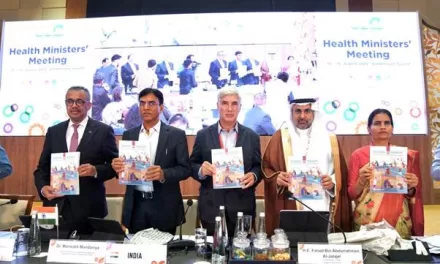In a groundbreaking study published on January 16, 2025, in The Lancet Regional Health—Southeast Asia, researchers have demonstrated that film interventions can significantly reduce physical violence against children and promote positive parenting. This innovative approach was tested among families who have migrated or been displaced from Myanmar to Thailand, where poverty and adversity often impact family relationships.
The study, led by Amanda Sim, assistant professor at McMaster University’s Department of Psychiatry and Behavioral Neurosciences, focused on enhancing parenting skills in a context where support systems for families are limited. “Parenting support is quite limited in this setting because of lack of funding and capacity,” Sim explains.
To address this gap, the researchers partnered with the Sermpanya Foundation, a grassroots organization supporting refugees and migrants in Thailand. Together, they created a 66-minute narrative drama film focused on parenting, featuring a storyline that addresses the challenges these families face. The film was produced by and for the refugee community to ensure its authenticity.
“The fact that local community members were the ones who co-created this film gives an authenticity that resonates deeply with the audience,” says Sim. “When people watch the film, they can really identify with the situations and struggles that are shown. That makes it so much more powerful.”
Results of the Study: The study involved over 2,000 caregivers from 44 communities who were randomly assigned to either watch the film or receive information about local health and social services. The results showed that families who watched the film experienced a 9% reduction in the use of physical violence against children. Additionally, they reported improvements in positive parenting practices, family functioning, and social support.
“The film gave parents examples they could relate to, which helped them make behavioral changes and use the skills they learned with their own children,” Sim notes.
This study highlights the potential of media and entertainment education as an effective tool for delivering parenting support, particularly in challenging contexts where traditional interventions may not be feasible.
Researchers are now exploring how this intervention can be scaled to reach more families and examining the aspects of the film that resonated most with viewers. They are also testing a five-week program based on the film that aims to improve caregiver mental health and further enhance parenting practices.
This research is a collaboration between McMaster University, community partners, and scholars from Duke University, Oxford University, and Mahidol University, and it opens new avenues for using film as a tool for social change and family support.
For further details, refer to the study: “Effectiveness of a Universal Film Intervention in Reducing Violence Against Children and Increasing Positive Parenting Among Migrant and Displaced Caregivers from Myanmar,” The Lancet Regional Health—Southeast Asia, DOI: 10.1016/j.lansea.2024.100526.











